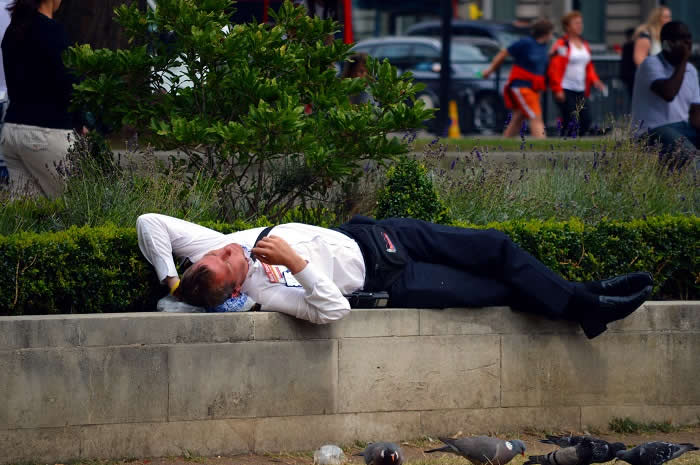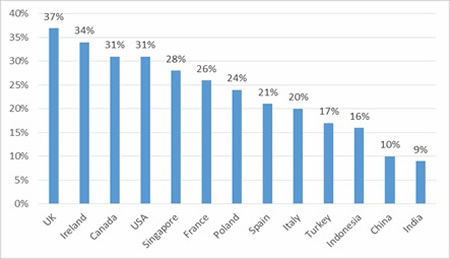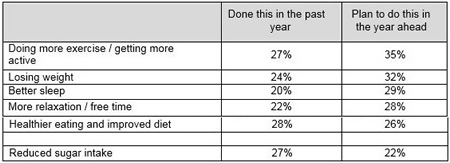Positive Health Online
Your Country

A Nation of Sleepless Nights: One In Four Adults Want a Better Night’s Sleep
listed in sleep and insomnia, originally published in issue 238 - May 2017
Sleep is a basic human necessity, but in the frenetic world that we live in, this may seem hard to come by. Indeed, there are many reasons why somebody may not get a good night’s shut eye. Contrary perhaps to what you might believe, getting a good night’s sleep is isn’t all about how long you sleep for, it’s about getting the right amount of quality sleep.

Image Source: Flickr Bill Smith
The NHS describes insomnia as “difficulty getting to sleep or staying asleep for long enough to feel refreshed the next morning.”[1] As the amount of sleep needed changes from person to person, insomnia is defined by sleep quality, rather than just by how much a sleep a person is getting.[2]
Getting the right amount of sleep helps to regenerate our bodies and minds, and as Neil Shah, Chief De-Stressing Officer at The Stress Management Society says, “sleep, like water and food, is vital for the maintenance of physical and mental health”[3]
The NHS underline the importance of good quality sleep by emphasizing how a good quality sleep can help people maintain a healthy weight, can help prevent diabetes, increases the chance of fertility and reduce the risk of heart disease.[4] Modern lifestyles can be a major factor in affecting quality sleep. Smartphones, TV and computers play a big part in the day to day lives of many of us, but if used too close to bedtime, they can have a detrimental effect on the ability to drift off at night. As many of us lead busy lives, we may eat late, or consume nicotine and alcohol in the late afternoon or evening. But doing these things can lead to a poor night’s sleep.[5] Anxiety and stress is also a common cause. Worries over goings on in life relating to work, relationships, health and finances can all weigh on your mind as you put your head on your pillow at night, and lead to trouble getting to sleep.[6]

Percentages of People Not Getting Enough Sleep
The correlation between stress, anxiety and sleep is clear, as the Aviva Health Check UK reports shows. Between 2014 and 2016, the number of people visiting their GP due to mental health concerns steadily increased from 13% to 16%, and in the same time, the number of people indicating that getting more sleep is one of their major health ambitions rose from 22% to 25%.[7]
Nicky Lidbetter, CEO of Anxiety UK, iterates this point, saying that “there is a close link between sleep and mental health” and emphasizing that “sleep is essential to our wellbeing”[8] So, that’s one in four of us who want a better night’s sleep. But what can we do to help achieve this?

Table 1: Healthy Actions Taken by Families
Neil Shah offers some helpful tips to help lower stress in order to get some great quality sleep. His tips are listed below:
Eat a Balanced Diet and Exercise Regularly
“Eat a balanced diet and take regular exercise. Be sure to exercise at least 4 hours before bedtime.”
Turn out the light when it’s time for bed
“Don’t expose yourself to bright lights before going to bed; it tricks your body into believing it’s time to be awake.”
Set a rising schedule (and stick to it)
“The body adapts quickly to routine. Going to bed and rising at the same time helps to establish a stable sleep pattern.”
If you’re hungry before bedtime, eat light
“Don’t eat a heavy meal before retiring; however don’t go to bed feeling hungry. Instead, eat a light snack.”
Don’t consume sugar or caffeine before bed
“Don’t eat or drink anything that contains sugar or caffeine before bedtime.”
Jot down your worries
“If you find yourself waking up at night thinking about things you have to do, keep a pad and pen close by to note them down so you can return to sleep untroubled.”
Maintain a healthy life balance
“Balance work and play. Stress and overwork lead to poor sleeping habits.”
Unwind your mind
“Don’t do anything to make the mind active just before sleep.”
Adopt a bedtime habit
“Have a bedtime ritual. For instance, lie face up in bed with arms and legs slightly spread. Close your eyes. Sense the subtle sensations in your body. Focus on a point at your third eye – in between eyebrows and slightly up. Imagine a black hole and sink into it. Or count sheep!”[9]
Along with the more traditional methods of helping to get better sleep, there is a new method emerging; sleep monitoring technology.

Table 2: Usage of Sleep Monitors
Although this may sound oxymoronic in light of the warnings about technology affecting sleep, more and more people are using sleep pattern monitors as part of their quest to get a better night’s sleep. Data from Aviva shows that the number of people using this technology almost doubled in 2016, with 7% of people using such a device, compared to 4% in 2015. Interestingly, amongst those who do use them, four in five have found it easy to integrate them into their lifestyles (80%) and almost three fifths of people (58%) have found that their sleeping patterns have improved as a result.[10]
Dr Doug Wright, Medical Director for Aviva UK Health, agrees with Neil Shah’s tips, suggesting: “sometimes a few lifestyle changes are all that’s needed to boost your sleep levels such as establishing a routine, eating dinner earlier in the night or avoiding TV and mobile phone screens before bed.”
However, Dr Wright also adds that “if stress, anxiety or other mental health issues are what’s keeping you awake, getting help and support – including seeking advice from your GP – is recommended. Tackling sleepless nights is a crucial step to improving overall health and wellbeing.”[11]
References
1. www.nhs.uk/Conditions/Insomnia/Pages/Introduction.aspx
4. www.nhs.uk/Conditions/Insomnia/Pages/Introduction.aspx
7. Aviva Health Check UK Report (2016) All percentages and figures shown in this report (unless otherwise cited) come from an online survey conducted by ICM research for Aviva UK Health. The survey was carried out in August 2015. Respondents were invited from ICM’s online panel and 2,004 interviews were conducted amongst a nationally representative sample of the UK adult population. Additional interviews were conducted to achieve a robust sample of 1,500 parents with children under 18.
9. www.aviva.co.uk/private-health-insurance/health-tips/work-life-balance/article/better-quality-sleep/
10. Aviva Health Check UK Report (2016) All percentages and figures shown in this report (unless otherwise cited) come from an online survey conducted by ICM research for Aviva UK Health. The survey was carried out in August 2015. Respondents were invited from ICM’s online panel and 2,004 interviews were conducted amongst a nationally representative sample of the UK adult population. Additional interviews were conducted to achieve a robust sample of 1,500 parents with children under 18.
Comments:
-
Andrew Cutler said..
never mind sleep monitors, get some melatonin! Artificial light, glare from computers and TV's, too little sunlight/daylight exposure all negatively impact on our circadian rhythms and thus our abilty to produce enough natural melatonin from our pineal glands.
It used to be possible to buy melatonin over the counter in chemists and health food shops as it is also useful in minimizing the effects of jet lag, but now it has been made more difficult to buy (surprise!!) so go online to find it. It works and is not a drug and of course not addictive, how can it be.
Happy sleep!